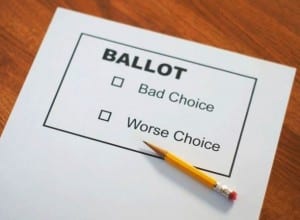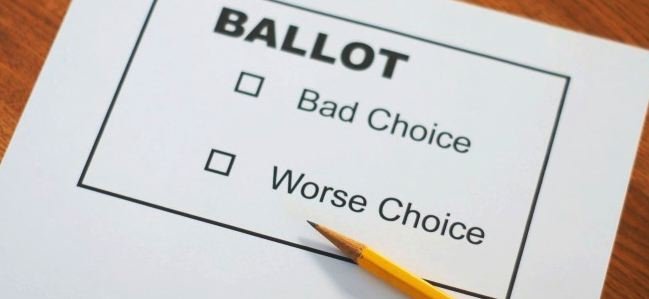Hypocrisy and Copyright
 When it comes to matters of copyright, “hypocrite” seems to be one of the favorite slurs to hurl at anyone in the discussion.
When it comes to matters of copyright, “hypocrite” seems to be one of the favorite slurs to hurl at anyone in the discussion.
Whether it’s Julia Schramm, an executive board member of Germany’s Pirate Party, letting her publisher strictly enforce copyright in her recent book or the Dutch anti-piracy group BREIN not paying adequate royalties to a musician that created a song for an anti-piracy ad, everyone loves a good hypocrisy.
But Schramm and BREIN are hardly the only people to be caught in such a situation. It happens every single day. I personally know musicians that stream music videos from illegal sources even as they enforce their copyright, graphic designers that illegally download software to make content they protect strongly and many others who create content they protect while ignoring the copyrights of others.
Between the anti-copyright sites carrying “all rights reserved” notices and copyright enforcers sharing infringing videos on Facebook, it can feel as if everyone has dabbled at least some in copyright hypocrisy, whether they admit it or not or even if they know it or not.
The truth is that, while some of these hypocrisies do truly come from people that are quick to sell out their stated morals, most don’t. They come from a complex and nuanced copyright reality that make holding onto simple ideals almost impossible.
To understand why, we have to take a deeper look at the realities of copyright online and try to understand why so many people are so conflicted.
The Dual Nature of Every Internet user
Before the Internet, there was a relatively clear divide between who was a consumer of content and who was involved in the creation/distribution of it. Copyright law was written and primarily used to deal with disputes between creators/distributors and other creators/distributors. It was rarely used on consumers because consumers rarely reached a scale of infringement that justified taking any action.
However, with the rise of the Internet, almost no one just passively consumes content anymore. Nearly all of us create it and distribute it as well. Between social networking, forums, blogs and even email, we are all creating and distributing content every day, it’s all a matter of how much and by what means.
But it’s often hard to match up what we want as consumers of content against what we want as creators. This is because we want to maximize the benefit we get from our works while minimizing the costs (financial, time, etc.) that we spend on obtaining other works.
The other issue is that no works are created in a vacuum, especially online. This post, for example, will be published using WordPress, typed in a browser by Google, will contain images from a stock photo library and references to other posts on the Web, all of which are copyrighted works that are necessary to make this one exist.
Most people do their best to mash these competing desires, saying either “If I want people to respect my work, I need to respect the work of others” or “If I want to lobby for more open access to copyrighted works, I need to encourage open access to mine.”
Still, it’s difficult, especially when thinking only casually about the topic, to keep a completely consistent and simple code and even those big ideas can break down quickly when presented with new challenges.
Facing the Challenges
While the hypocrisies are often amusing and striking (Patrick and I definitely had some fun at the expense of Schramm on the Copyright 2.0 Show to be posted tomorrow), they’re also an excellent opportunity to understand just how difficult it is to create a simple copyright ideology.
A good example of this is what’s going on in Guyana right now. Guyana, a relatively poor nation, is seeking bids from companies to make illegal copies of textbooks. According to its government, if it doesn’t do this it will only be able to afford one set of books per classroom but, if they go this route, they’ll be able to give every student a set.
Is it acceptable for Guyana to do this? If so, who will invest in the creation of new textbooks and is it fair to shift those costs to other nations? These aren’t easy questions and there are no clear answers.
If we start using hypocrisies not as a means to discredit people we don’t like but as a means to explore just how complex these issues are.
For example, the Schramm case seems to be a simple cut-and-dry case of supporting file sharing until the money says other wise, but it’s clear that, for Schramm, she received the best benefit from her book by going a traditional route. Even if supporting non-commercial distribution is great for most works, it wasn’t right for hers and, as such, isn’t right for all.
Similarly, with BREIN, though it’s definitely egregious to not pay proper royalties to the person who wrote music for an anti-piracy ad, it also exposes just how complex the royalty system is and just how difficult it is for artists to get what they deserve under it, even if everyone is working to be honest (though it’s not clear if BREIN was).
This doesn’t make these inconsistencies right or good, but it does make them a window into the much greater complexities that lie underneath the catchphrases and soundbytes that dominate the copyright debate.
Bottom Line
Too often examples of hypocrisy are used to end debates and conversations. It’s a way to discredit people, remove viewpoints from discussion and paint an entire group of people with a broad brush.
Ideally, I’d like to see them used as conversation starters, to get past what happened and shift the focus on why.
If we’re going to have serious conversations on this topic, we can’t end it when we find that someone has a self-contradictory opinion or has done something that conflicts with a previously stated opinion. We have to face these complexities and understand them.
This isn’t to say we should revel in being hypocrites, we all owe it to ourselves to be as true to our beliefs as we can. Reconciling opposing needs isn’t easy, but it’s something we all do every day on a variety of issues, not just copyright.
But when you stop talking after imperfections arise, you lose the deeper conversation and the chance for everyone to become a better person with a deeper grasp on the subject.
Because you can never really expect perfection, but you can always work for improvement.
Want to Reuse or Republish this Content?
If you want to feature this article in your site, classroom or elsewhere, just let us know! We usually grant permission within 24 hours.
